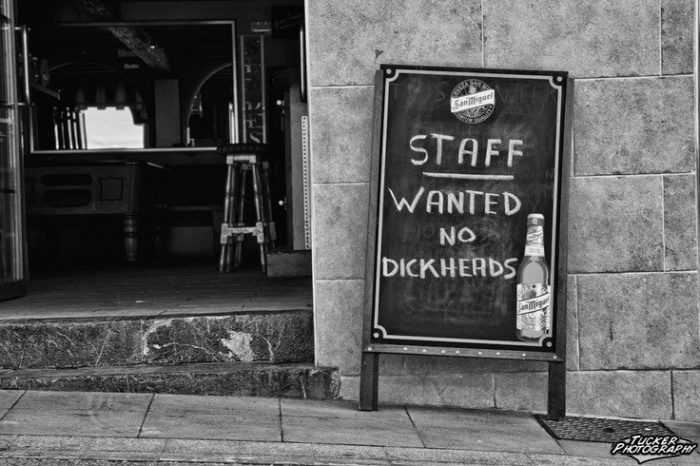
22 May Why the “no dickheads policy” is good policy and backed by theory
Paul Roos, AFL Premiership coach of the Sydney Swans and turnaround coach of the Melbourne Football Club is renowned for his work on culture and leadership as a crucial part of the performance outcomes of his football teams. He is also famous for his ”no dickheads policy” (I am a friend and a fan).
It turns out that a lot of leaders and organisations are working with the ‘no dickheads’ policy in a quest to lift performance and engagement.
Think about a typical interaction with a colleague at work. How did they leave you feeling?
- Energized?
- De-energised?
- Bored?
- Neutral
It turns out the damage that can be caused to the organisational network by the “de-energisers” is so great that it outweighs the benefits of their performance and productivity in the long run.
Studies at MIT have explored the impacts of interpersonal relations and interactions at work and through plotting and mapping the energisers versus the de-energisers they discovered “black holes” of performance in the de-energiser’s zone.
So each encounter, no matter how short or intensive, contributes to the overall culture, levels of creativity, psychological safety and employee performance and engagement.
Creating a ’no dickheads’ environment is more than just a hiring decision though.
Being clear about the values, expected leadership behaviours, and the norms in a team is essential to being able to measure and commit and then hold each other to account.
Human energy feeds on ideas, goals, learning and autonomy. Moreover teams need to recognise the work that energises and de-energises each member.
Knowing and understanding our own strengths and then helping others to recognise and use their own, is equally as powerful in maximising the potential energy in the team.
Gram Consulting Group works with teams to maximise their performance and energy.


